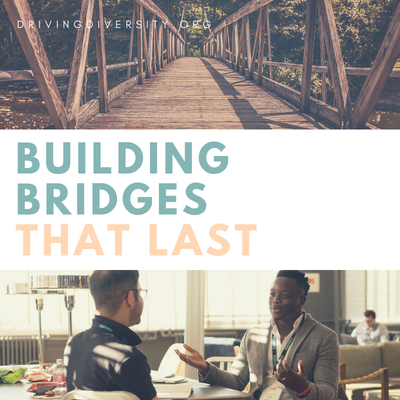 Every day workers in a certain town crossed a shallow river to collect wood. This wood provided raw materials, heat, and trade goods. Although wading through the water was inconvenient, wet, and often exhausting, the laborers bore the heavy load to provide for their town. One day a businessman from a neighboring town arrived to conduct his trade. Upon seeing the laborers struggling to cross the water, he resolved to build them a bridge. After all, the wood business was highly profitable and this new bridge would buy immense goodwill with the town’s mayor. Upon meeting with the businessman, the mayor immediately granted permission for the bridge. Although no one consulted the laborers, this was hardly noticed as excitement spread to other towns nearby. If the businessman made this village a bridge, perhaps he would build others too. When the bridge was finished, the businessman and the mayor held a celebration. The abundant supply of wood raised the fortunes of many in the town. The businessman went home congratulating himself on a job well done. But a few months later came the rainy season. The river banks swelled, the waters rose, and the bridge’s foundations washed away. Nothing was left of the new bridge. The town was devastated. Some blamed the mayor. The mayor blamed the businessman. The businessman mysteriously cut ties with the town and disappeared. The laborers bickered among themselves and some of the laborers refused to go back to wading through the river. Many in the town discussed building a new better bridge but without the financial support of the businessman, they felt they didn’t have enough resources. After several years, things returned back to the way they were before. Until one day a new businessman came to town. Many of us often function like the businessman. We enter situations in which we have limited knowledge and immediately see a problem. After hearing the complaints and seeing the issues, we set about immediately to solving them. But often times, we don’t know what we don’t know. The businessman couldn’t have known how high the river would get during a peak storm. He couldn’t have known that the mayor may not have the best interest of the people in mind. He didn’t know that some of the laborers had some concerns about the bridge, but didn’t feel empowered to share them with him. And although the businessman thought he was helping, in the long term, his act of goodwill actually set back the whole town. Instead of believing that they could build their own bridge, many in the town believed they needed the help of a powerful businessman to do it for them. When it comes to cross-cultural ministry and creating multi-ethnic communities, we should be aware that many problems are not easily solved. What might seem like bright solutions may actually be more like bandaids. We might think we are helping when are actually not helping at all. None of see the whole picture. And certainly, none of us have the power to change human hearts and minds. Only God knows what people need. Only He knows how to solve the difficult problems facing the world. Although we are often clueless outsiders, he is the Ultimate Insider who became flesh. He dwelt among us, overcoming sin and defeating death. You and I don’t have all the solutions. But we do have a God who does. So when a student from a different background has a problem, we can learn to listen. When there are controversies on our campus, we can first listen. When our best efforts are met with attitude instead of gratitude, we can listen better than ever before. Because we want our bridges to last. We want them to survive the next storm. We need God to provide the foundation, God to build it, and God to sustain it. As we listen to Him and honor one another in Christ, He will do it. 7/20/2019 11:18:51 pm
I also believe that only God knows everything. He even knows what will happen in the end of everything. We, humans, have limited knowledge. We cannot work alone by our self. We need to learn from others too. We have to listen and make a compromise to build a solution for the problem. Most of all you have to ask God's help first before doing anything for you to be able to succeed because He will guide you from start to finish. Comments are closed.
|
Categories
All
Contributing Authors
|

 RSS Feed
RSS Feed